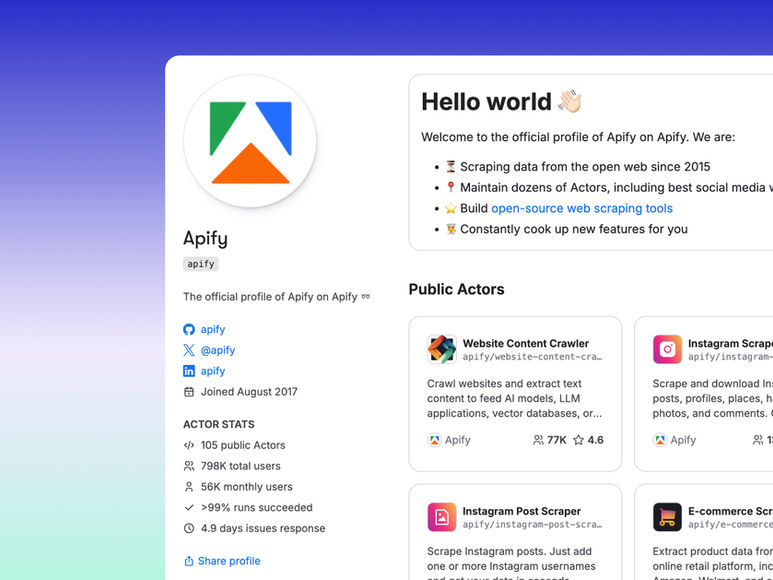Why Website Accessibility Matters for Your Business
- Victor Anferov

- Aug 21, 2025
- 4 min read
In today's digital age, the importance of an accessible website cannot be overstated. Not only is making your website accessible a legal requirement in many jurisdictions, but it also reflects your commitment to inclusivity and good customer service. As a business, ensuring that all potential customers, including those with disabilities, can access your digital content should be a top priority. But why exactly does website accessibility matter? Let’s explore the reasons why ensuring your website is accessible matters for your business.
Accessible Website Practices
Creating an accessible website involves several key practices that enhance usability for everyone. Here are some best practices to consider:
Alternatives for Non-Text Content: Websites should provide text alternatives for any non-text content. For instance, if you include images, having alt text helps those who use screen readers understand what the image conveys.

A single individual discussing website accessibility practices. Keyboard Navigation: Ensure that your website can be fully navigated using a keyboard. Many users with disabilities cannot use a mouse and rely on keyboard shortcuts to move through your site.
Readable Text: Consider your audience’s reading level and ensure that your text is easy to read. Use clear fonts, and maintain a good contrast between text and background to enhance readability.
Clear Structure: Structure your content using headings, lists, and visually distinct sections to make it easier for users to follow. Properly organizing content not only aids accessibility but also improves SEO and user engagement.
Accessible Forms: Forms should be designed to be accessible, with labels clearly associated with their corresponding input fields. Include instructions and error messages to guide users in completing forms successfully.
Responsive Design: Ensure your website is mobile-friendly. More users are accessing websites on mobile devices, and an accessible site should adapt seamlessly to various screen sizes.
By implementing these practices, you are not just complying with regulations; you are creating a user-friendly platform that benefits everyone.
Do Websites Legally Have to Be Accessible?
Yes! The legal requirements regarding website accessibility are becoming stricter globally. In the United States, the Americans with Disabilities Act (ADA) states that businesses must provide equal access to their services. This includes services offered online. Similarly, in the European Union, the Web Accessibility Directive mandates accessibility standards for public sector websites.
Neglecting website accessibility can lead to legal actions and costly penalties. For instance, in 2020 alone, there were more than 3,500 lawsuits filed in the U.S. regarding website accessibility.
Businesses must be proactive in making their digital environments accessible or risk facing consequences.
The Financial Benefits of Accessibility
Investing in website accessibility can also lead to considerable financial benefits for your business. According to a study by the Click-Away Pound Survey, 71% of disabled customers with access needs will click away from a website that they find difficult to use. This indicates a significant loss in potential revenue.
Furthermore, by making your website accessible, you can tap into a broader audience. The World Health Organization estimates that over 15% of the world's population lives with some form of disability. Failing to accommodate this demographic means potentially losing out on a large customer base.
In addition, accessible websites tend to have better search engine optimization (SEO) performance. Search engines such as Google favor sites that follow best practices, which cause accessible websites to rank higher in search results. Higher visibility leads to increased traffic, ultimately increasing conversions and revenue.
Enhancing Brand Reputation
Accessibility is not just a legal requirement or a financial consideration; it plays a crucial role in your brand reputation. Consumers today are more aware than ever of social responsibility. They prefer to engage with brands that demonstrate commitment to inclusivity and diversity.
When you prioritize website accessibility, you send a message that your business values all customers equally. This can lead to customer loyalty and even word-of-mouth referrals, as people are likely to recommend businesses that treat everyone well.
Moreover, an accessible website can help differentiate you from competitors. Many businesses have not yet prioritized accessibility; positioning your brand as a leader in this area could set you apart.
Practical Steps to Improve Accessibility
Making your website accessible doesn’t have to be overwhelming. Here are practical steps to help you improve:
Audit Your Existing Website: Use various accessibility evaluation tools to analyze your current website. This will help identify areas for improvement.
Educate Your Team: Provide training on accessibility best practices. Everyone involved in the design, development, and content creation should be aware of the importance of accessibility.
Attract Professional Help: If accessibility remains a challenge, consider hiring professionals who specialize in website accessibility services. They can provide invaluable insights and assist in compliance.
Adopt Regular Reviews: Accessibility is an ongoing process. Make it a practice to regularly review and update your website to ensure continued compliance with the latest standards.
Feedback Mechanism: Implement a feedback mechanism allowing users to report accessibility issues. This provides firsthand insight on what areas need improvement.
By taking these actionable steps, your business can significantly improve website accessibility while ensuring you meet legal requirements and enhance user experience.
The Takeaway: A Culture of Accessibility
Integrating accessibility into your website shouldn't be viewed as a checkbox to tick off. Instead, it should inspire a culture of accessibility within your business. Encouraging inclusive practices can improve internal collaboration, enhance customer satisfaction, and build brand loyalty.
In a world where digital presence is paramount, overlooking website accessibility can lead to lost opportunities and a negative brand image. Embrace accessibility as part of your overall business strategy, and you'll not only comply with legal obligations but also serve a growing market and reap the benefits that come with it.
By fostering an inclusive online environment, you pave the way for a more equitable digital landscape—one where everyone can participate and engage effectively.
































